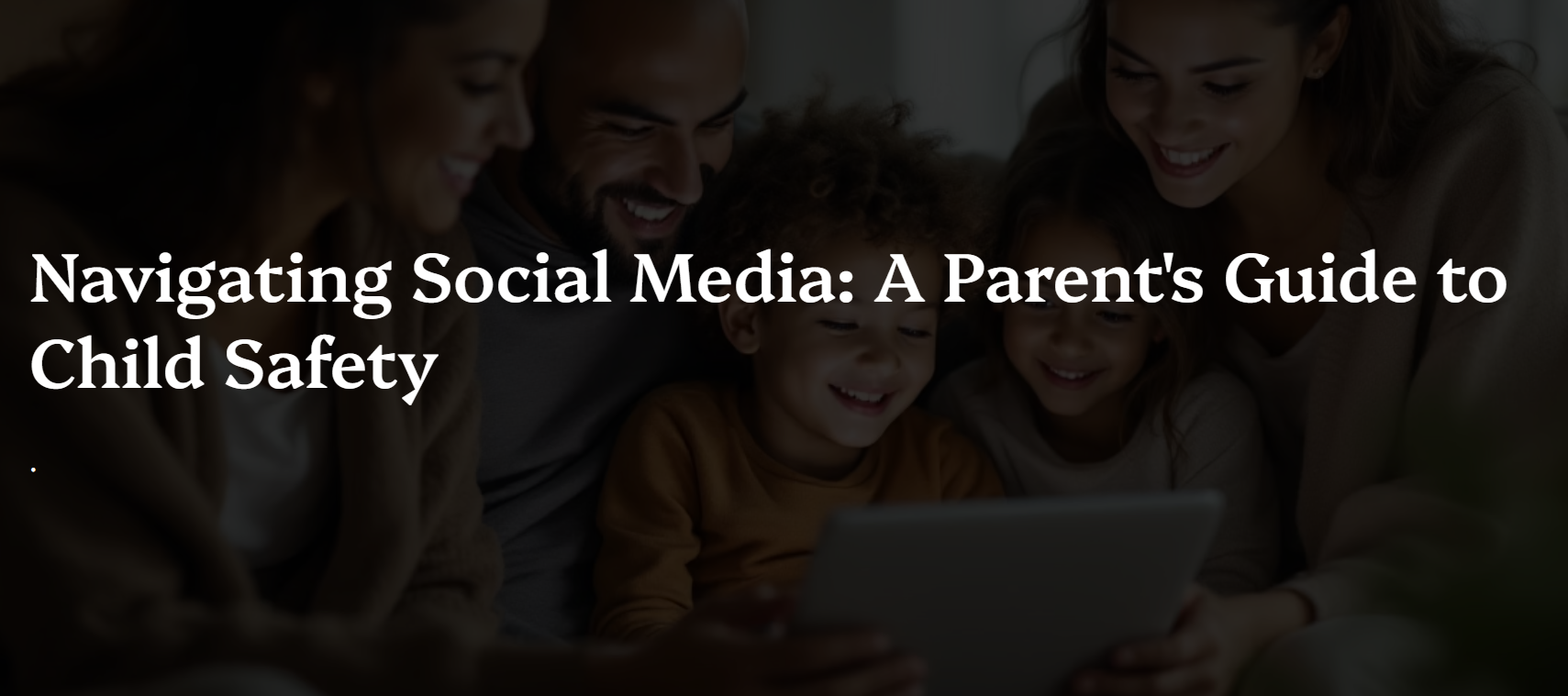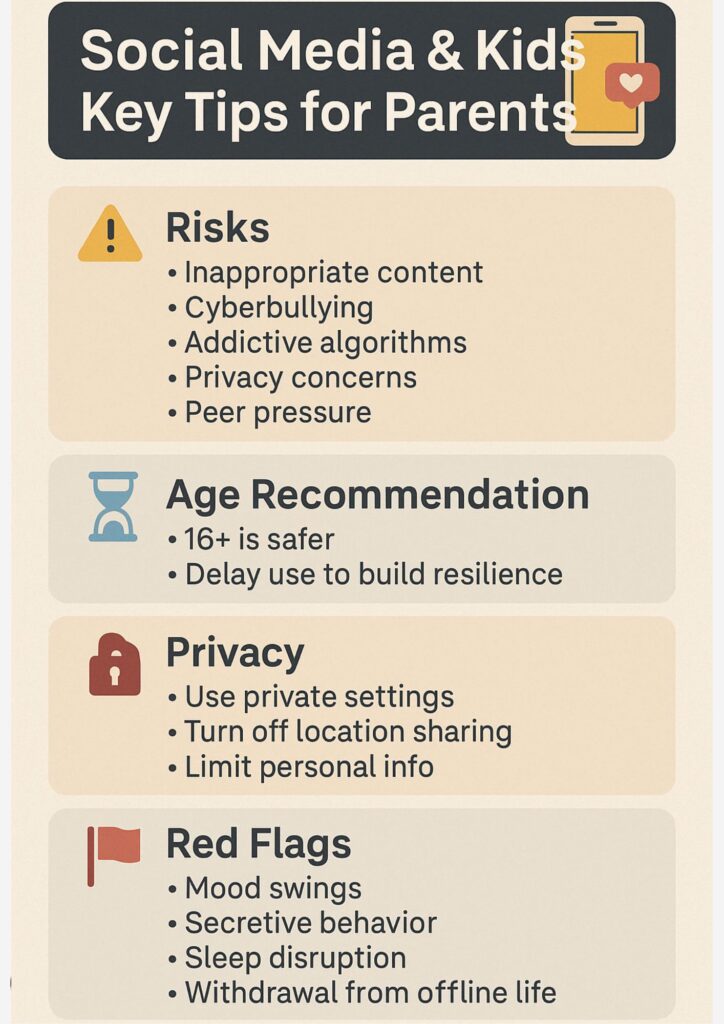Social Media Apps
Learn how to protect your child from the risks of social media and why delaying access until 16+ can support healthier digital habits.

Social Media & Kids: Watch These Before You Say Yes
Social media plays a huge role in the lives of children and teens—but it’s not always a space designed with their wellbeing in mind.
From exposure to adult content and cyberbullying to addictive algorithms and privacy risks, these platforms can have a serious impact on a child’s emotional and mental health.
That’s why we recommend delaying social media use until at least age 16, when young people are more emotionally equipped to handle the pressures and content they may encounter.
Quick Guide for Parents

More in the hub
What are the biggest risks of social media for children?
Exposure to adult content, graphic images, and inappropriate messages
Cyberbullying, anonymous messaging, and online harassment
Algorithms that promote harmful trends, unrealistic beauty standards, or addictive scrolling
Data collection and lack of meaningful privacy protections
Pressure to gain likes, followers, or fit in with online trends
At what age is it safe for my child to use social media?
While many platforms allow users from age 13, we recommend waiting until at least 16+
Most platforms are not designed with child safety in mind
Teens are better equipped to handle peer pressure, digital drama, and content awareness as they mature
Delaying access allows time to build emotional resilience and critical thinking
How can I protect my child’s privacy on social media?
Delay account creation as long as possible
Avoid posting personal details (location, school, birth date, etc.)
Use private accounts and restrict who can comment, tag, or message
Disable location-sharing features like Snap Map
Regularly review account activity and privacy settings together
What are the signs my child may be struggling with social media use?
Mood swings, anxiety, or low self-esteem after time online
Secrecy around devices or deleting messages/apps
Obsession with likes, comments, or follower counts
Difficulty sleeping or constant need to check notifications
Avoidance of offline activities or real-world friendships
How can I talk to my child about safe and respectful social media use?
Be honest about the risks and why you’re choosing to delay access
Set a family agreement for digital use, including age limits and check-ins
Talk about body image, peer pressure, and how online content is often edited or fake
Encourage positive digital habits—like kindness, privacy, and screen-free time
Keep the conversation open, not judgmental—your goal is to guide, not control
Explore More Guides & Expert Tips
Discover more expert advice to help you guide your child safely on social media.

